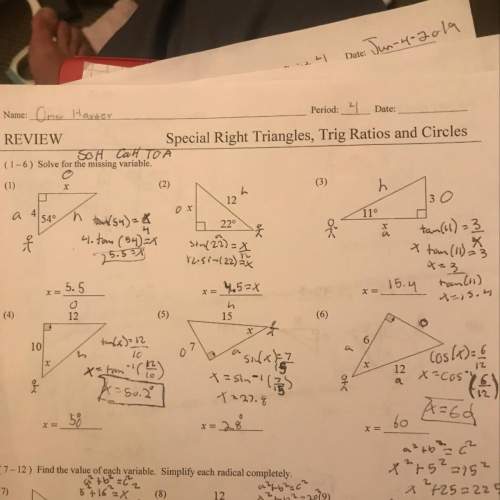
Mathematics, 02.09.2020 21:01 javontiye226
The true statement "fx is a rational number and y is a rational number, then the sum of x and y is a rational
number" is often confused with the converse "If the sum of x and y is a rational number, then x is a rational
number and y is a rational number." In this case, the converse is not always true. Which statement is false?
A)
If the sum of x and y is a rational number, then x must be a rational
number
B
If x= 3.5 andy is a whole number, then the sum of x and y must be a
rational number.
If x is an even integer and y is an odd integer, then the sum of x and y must
be a rational number
If the sum of x and y is a rational number, then x may be a rational number
or x may be an irrational number.

Answers: 1


Other questions on the subject: Mathematics


Mathematics, 21.06.2019 17:00, sunshine52577oyeor9
Use the graph of the sine function y=2sinθ shown below
Answers: 1

Mathematics, 21.06.2019 17:30, gungamer720
Nine more than four times a number is the same as one less than twice the number. find the number?
Answers: 1

You know the right answer?
The true statement "fx is a rational number and y is a rational number, then the sum of x and y is a...
Questions in other subjects:



History, 24.05.2021 04:00

English, 24.05.2021 04:10

Mathematics, 24.05.2021 04:10

History, 24.05.2021 04:10

Physics, 24.05.2021 04:10

Mathematics, 24.05.2021 04:10


Social Studies, 24.05.2021 04:10




